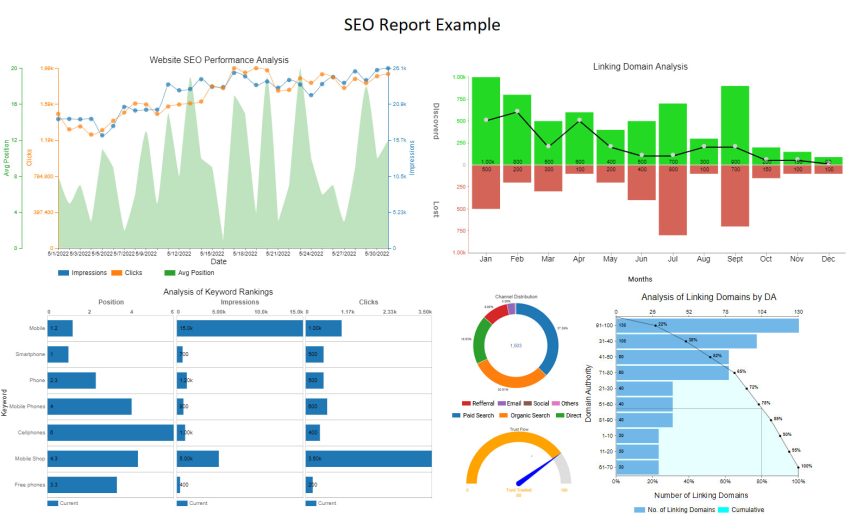
In the digital age, crafting content that resonates with both users and search engines is crucial for a successful online presence. This process, known as content optimization, ensures that your website not only attracts visitors but also ranks well on search engines. This long-form guide will walk you through the essentials of optimizing content for both users and search engines, focusing on strategies that boost engagement and improve search engine rankings.
What is Content Optimization?
Content optimization is the process of ensuring your content is written, structured, and formatted to appeal to both human readers and search engine algorithms. This involves a mix of high-quality content creation, strategic keyword use, and technical SEO practices to enhance your website’s visibility and user experience.
The Importance of a Strong Content Strategy
A solid content strategy is the backbone of successful content optimization. It involves planning, creating, and managing content that aligns with your business goals and addresses the needs of your target audience. By integrating a well-thought-out content strategy, you can ensure that your content is both relevant and valuable, thereby driving more traffic and engagement.

Social Proof in Content Strategy
How Social Proof is Used for Persuasion
Social proof is a psychological phenomenon where people mimic the actions of others in an attempt to reflect correct behavior. In digital marketing, social proof can significantly enhance your content’s credibility and persuasiveness. Here are a few ways social proof is used effectively:
- Nightclubs and Bars: Patrons wait in line outside to create a perception of popularity.
- Comedy Shows: Laugh tracks are used to encourage audience laughter.
- Restaurants: Highlighting popular dishes increases their sales.
Online, social proof manifests through reviews, testimonials, social shares, and endorsements from influencers. These elements can boost your content’s credibility and influence your audience’s behavior.
What Search Engines Are Looking For
To optimize your content for search engines, it’s crucial to understand what they prioritize:
- Content: Search engines analyze the theme, text, and meta information of your pages.
- Performance: Your site’s speed and functionality impact its ranking.
- Authority: High-quality content that other sites link to boosts your authority.
- User Experience: A well-designed, easy-to-navigate site with low bounce rates ranks higher.
Crafting Content for Search Engine Success
Creating “great content” is a cornerstone of SEO. Here’s how to craft content that appeals to search engines:
- Identify Search Intent: Understand what users are looking for and tailor your content to meet their needs.
- Use Keywords Strategically: Incorporate relevant keywords naturally within your content.
- Engage Your Audience: Use high-quality writing, examples, images, and multimedia to make your content engaging and informative.
Quality Guidelines
Google’s quality guidelines emphasize the importance of avoiding deceptive practices. Follow these principles to ensure your content aligns with Google’s expectations:
- Avoid Manipulative Tactics: Don’t use deceptive techniques like misspelling well-known websites to attract traffic.
- Focus on User Experience: Provide valuable, accurate information that genuinely helps users.
Focus on Your Meta Data Too
Optimizing your meta data is essential for improving your content’s search engine visibility:

- Title Tags: Write unique, compelling titles for each page.
- Meta Descriptions: Create unique, descriptive meta descriptions for each page.
- Meta Keywords: While less relevant today, ensure any meta keywords are specific and correctly formatted.
Using Social Proof Effectively
Integrate social proof into your content strategy by showcasing:
- Customer Reviews and Testimonials: Highlight positive feedback from satisfied customers.
- Social Media Shares: Display social share counts to demonstrate your content’s popularity.
- Influencer Endorsements: Feature quotes or endorsements from industry influencers.
Enhancing User Experience
A positive user experience (UX) is critical for both users and search engines:
- Mobile Optimization: Ensure your site is mobile-friendly.
- Easy Navigation: Make your site easy to navigate with clear menus and internal links.
- Fast Load Times: Optimize your site’s speed by compressing images and using efficient coding practices.
Optimizing content for users and search engines requires a balanced approach that prioritizes high-quality content and technical SEO practices. By understanding search engine requirements and focusing on a solid content strategy, you can create content that engages your audience and ranks well on search engines.
